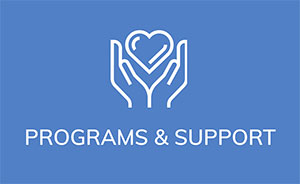MONTHLY QUIZ: Concerning the reason we got CLL:
1: CLL can be familial, but that is rare.
2: CLL incidence is increased in those exposed to Agent Orange in Vietnam and elsewhere.
3: CLL incidence is increased in those exposed to radiation from Chernobyl.
4: CLL is linked to benzene exposure.
5: All of the above.
6: 1, 2 and 3 are correct.
The correct answer is #6. CLL mostly occurs episodically with no known cause but occasionally CLL runs in families. Agent Orange is a recognized risk for CLL and exposed veterans who develop CLL may be entitled to compensation. Radiation was not considered a risk due to the lack of increase of CLL after Hiroshima, but we now know from the Chernobyl experience, that Hiroshima was the exception due to the very low baseline incidence in of CLL in ethnic Japanese. Benzenes and other solvents may increase the risk of other blood cancers, but there has been no link with CLL. Usually, we don’t know why we got CLL.
NEWS:
Join us on August 21st for our next webinar Beyond the Diagnosis: Surviving and Thriving with CLL / SLL with Dr. Heather Wolfe and CLL patient advocate Stephen Feldman.
September 1st will be the 3rd World CLL Day. Watch CLLSociety.org for details. CLL Society has been deeply involved in planning and developing materials for World CLL Day since its inception. Be sure to share posts on Twitter and Facebook to create awareness. World CLL Day website is full of helpful resources.
CLL Society is excited to welcome three new members to our team. Along with other work, Vickie Miller, RN, MEd will be upping our educational output, Ron Katz will be leading our development efforts and Saira Sultan, JD is our Director of Government Affairs & Public Policy.
BASICS: Clinical Trials Phases – This applies to all trials, including those for CLL and COVID-19
Phase 1: Is the drug safe and what’s the best dose? There is no placebo arm. These are small trials. While they are officially designed to check for safety, clearly efficacy is also looked for.
Phase 2: Does the drug work? Is it effective? Medium size trials where there is no placebo or control arm. There can be different arms with different combinations or sequencing of the drugs.
Phase 3: Is it better than the standard of care (SOC)? These are large trials where there is randomization to either a control arm of standard care or the new therapy. Only when there is no “standard of care,” there might be a placebo arm. This is almost never the case in CLL. Ask if the trial allows “crossover” so that if one progresses on one arm, one can transfer to the other. That’s important because it allows patients to get the benefit of the best treatment, no matter to which arm they were randomized. Phase 3 trials are often “pivotal trials” required by the FDA to decide whether to approve the treatment as a new standard of care.
Phase 4: What else do we need to know about this approved drug or vaccine or treatment?
WORD OF THE MONTH: Heterogeneity
Heterogeneity is the quality of being diverse in character or content. CLL is a heterogenous disease as we are all different in how our disease progresses and is managed. In clinical trials and in statistics, the concept of heterogeneous populations is critical. Trials must compare “apples to apples.” One easy example is that you can’t compare relapsed CLL patients to frontline CLL patients from different trials. We are all different.
If the CLL Society has helped you or a loved one, please consider making a donation.

















